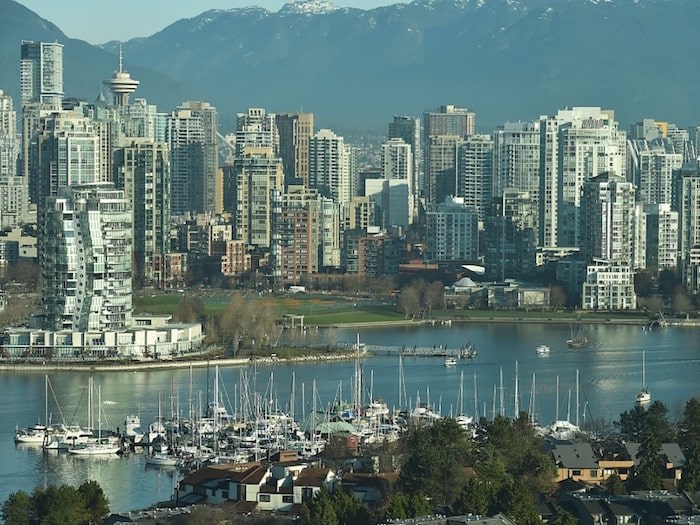 Vancouverc ity council approved the empty homes tax [EHT] in 2016 to pressure homeowners to rent out properties they don’t live in full time to help address Vancouver’s low vacancy rate. Photo: Dan Toulgoet
Vancouverc ity council approved the empty homes tax [EHT] in 2016 to pressure homeowners to rent out properties they don’t live in full time to help address Vancouver’s low vacancy rate. Photo: Dan Toulgoet
The Nov. 27 decision follows a staff report that analyzed the fairness and effectiveness of the tax, which was implemented in 2016 at one per cent of assessed taxable value to encourage homeowners to rent out properties they weren’t living in full-time. All revenue collected, after costs, is directed towards affordable housing initiatives.
The staff report said the empty homes tax [EHT] was working as intended and it recommended against bumping up the rate because experts “strongly cautioned” it would increase the potential for noncompliance and evasion. They said they planned to monitor the impact of the provincial speculation tax and other measures, and re-assess the situation if necessary. The report also indicated staff planned to explore options to work with the province to improve compliance with the EHT, including pursuing an information sharing agreement with the province.
It was Mayor Kennedy Stewart who proposed the successful motion to increase ithe tax to 1.25 per cent and he included provisions for additional .25 increases for 2021 and 2022. The impact of the increases will be analyzed each year. During his election campaign Stewart had promised to triple the EHT but later said circumstances had changed and he would wait to see staff's report on the tax.
During Wednesday's council meeting, COPE Coun. Jean Swanson proposed raising the tax up to 1.9 per cent, but failed to get support from her fellow councillors.
Stewart's motion also asked that staff use additional revenue created by the increase to be applied to enforcement efforts and to provide affordable housing for households earning less than $50,000 annually. He said he was pleased council supported his motion for the phased increase.
"While the ultimate goal is to add more pressure on empty homes to be filled, any additional revenues will now be used to provide housing for Vancouver's most vulnerable residents," Stewart said in a Nov. 27 press release.
Meanwhile, staff will report back on options for late EHT declarations made in good faith after the deadlines to initiate a complaint or request for a review have passed. A new exemption was also approved where, under certain circumstances, development and tenancy exemptions can be combined to meet the six-month occupancy threshold to be exempt from the tax, while the deadline for property owners to submit a complaint if they want to challenge the levy was extended to 90 days.
The latest city statistics revealed there were 22 per cent fewer vacant homes in 2018 compared to 2017, a 21 per cent drop in exempt properties and a seven per cent increase in tenanted properties.
The city has collected $39.7 million in net revenue for affordable housing initiatives since the EHT was implemented.
As of Nov. 1, 2019, tax revenue charged to property owners totalled $80.3 million -- $77.4 million of revenue ($38 million in 2017 and 39.4 million in 2018) plus $2.8 million in revenue from penalties and fines. They city had collected $56.9 million as of Nov. 1 of this year. All funding may not be spent in the year it was collected and some projects may require multi-year funding.



